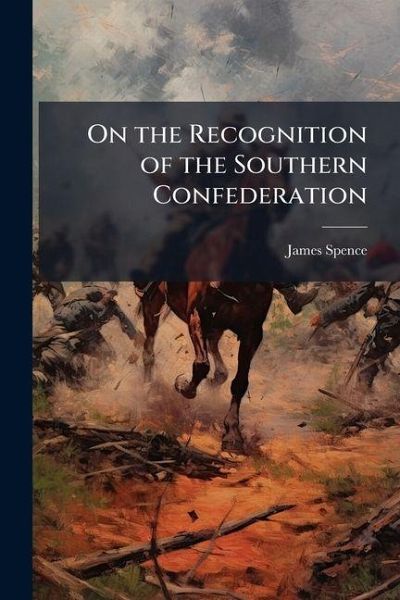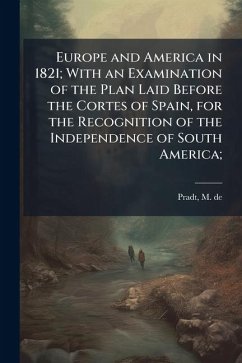
On the Recognition of the Southern Confederation
Versandkostenfrei!
Versandfertig in über 4 Wochen
15,99 €
inkl. MwSt.
Weitere Ausgaben:

PAYBACK Punkte
8 °P sammeln!
On the Recognition of the Southern Confederation, written in 1862 by James Spence, presents a contemporary analysis of the political and economic factors influencing the potential recognition of the Confederate States of America by foreign powers. As the American Civil War raged, the question of whether European nations, particularly Great Britain and France, would officially acknowledge the Confederacy as an independent nation became a crucial aspect of the conflict. Spence explores the arguments for and against recognition, examining the economic ties, political considerations, and diplomati...
On the Recognition of the Southern Confederation, written in 1862 by James Spence, presents a contemporary analysis of the political and economic factors influencing the potential recognition of the Confederate States of America by foreign powers. As the American Civil War raged, the question of whether European nations, particularly Great Britain and France, would officially acknowledge the Confederacy as an independent nation became a crucial aspect of the conflict. Spence explores the arguments for and against recognition, examining the economic ties, political considerations, and diplomatic strategies that shaped international perceptions of the Confederacy. This work provides valuable insights into the complex dynamics of international relations during the Civil War era, shedding light on the Confederacy's efforts to gain legitimacy on the world stage and the challenges it faced in overcoming the Union's diplomatic efforts. "On the Recognition of the Southern Confederation" remains a significant resource for understanding the political dimensions of the Civil War and the Confederacy's struggle for survival. This work has been selected by scholars as being culturally important, and is part of the knowledge base of civilization as we know it. This work was reproduced from the original artifact, and remains as true to the original work as possible. Therefore, you will see the original copyright references, library stamps (as most of these works have been housed in our most important libraries around the world), and other notations in the work. This work is in the public domain in the United States of America, and possibly other nations. Within the United States, you may freely copy and distribute this work, as no entity (individual or corporate) has a copyright on the body of the work. As a reproduction of a historical artifact, this work may contain missing or blurred pages, poor pictures, errant marks, etc. Scholars believe, and we concur, that this work is important enough to be preserved, reproduced, and made generally available to the public. We appreciate your support of the preservation process, and thank you for being an important part of keeping this knowledge alive and relevant.



![Confederation and Amendment of the Local Constitution Considered [microform] Cover Confederation and Amendment of the Local Constitution Considered [microform]](https://bilder.buecher.de/produkte/65/65576/65576100n.jpg)








